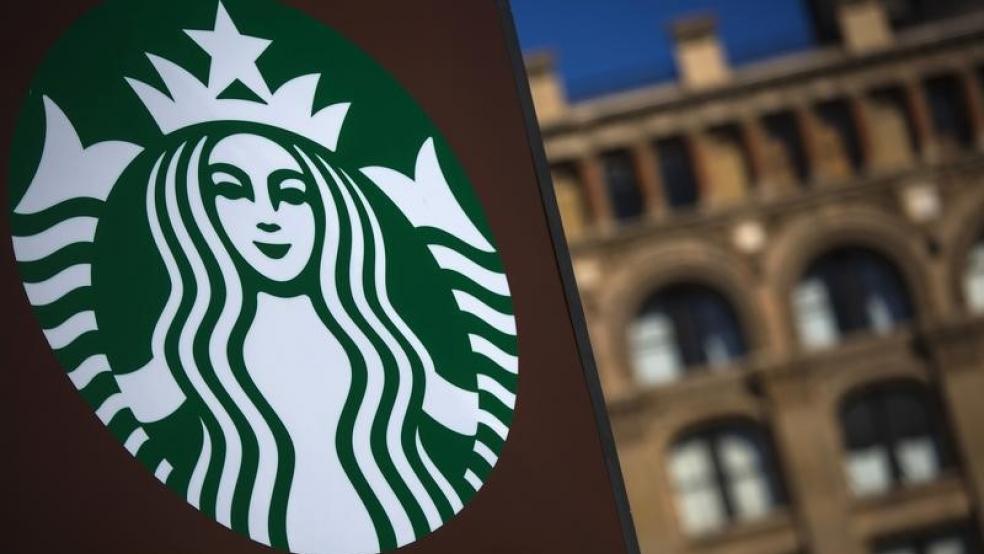Starbucks’ CEO Howard Schultz, known for involving his corporation in controversial social issues, just announced his latest venture, which is to provide jobs for Americans between the ages of 16 and 24 who are out of school and not working.
The Schultz Family Foundation, founded by the CEO and his wife Sheri, is committing $30 million to support the program, called the 100,000 Opportunities Initiative. Another 16 companies have also pledged their assistance, along with The Aspen Institute and other major foundations.
Related: Why Youth Unemployment Is Still a Huge Problem
Over the next three years, the entities involved say they will provide jobs, internships and apprenticeships to 100,000 young people, with Starbucks promising to hire 10,000 on its own. The other companies, including Walgreens, Target, Alaska Airlines and Microsoft, have also made similar promises.
The program will kick off with a jobs fair on Aug. 13 in Chicago. All of the companies will participate, with the intent to train more than 2,000 unemployed youth and hire at least 200 kids on the spot. The program promises to train youth in “hard” skills, such as customer service and technology, as well as “soft” skills, such as problem-solving and time-management.
Unemployment among teenagers and young adults has fallen back to pre-recession levels. The seasonally adjusted unemployment rate for people between the ages of 16 and 19 was 18.1 percent as of last month, compared to 19.2 percent in June 2008. But Americans between the ages of 16 and 34 still make up more than half of the more than 8 million people out of work even though that group represents just over a third of the civilian labor force, as the Pew Research Center noted recently.
The Schultz’s are careful not to characterize the initiative as charity. In an op-ed in The New York Times, the couple writes, “It solves a real business problem: According to one study, one-third of employers surveyed have trouble filling open positions because of talent shortages, and 43 percent say those shortages hurt their business.”
Of course, this isn’t the first time Starbucks has launched a big, publicity-generating campaign tied to a political or economic issues. It’s not even the first time this year.
In March, Schultz launched his short-lived “Race Together” initiative, in which baristas were either writing or putting stickers on customers’ cups as a way to start addressing the sensitive issue. Customers of Starbucks were not only uncomfortable with the coffee conglomerate sticking itself into national issues, but they were also worried that the chatter might lead to slower service. The idea generated more mockery and criticism than genuine discussion, and Starbucks ended the campaign within a week.
Related: Free Online College Tuition for Starbucks Baristas
In October 2013, Schultz announced plans to circulate petitions, which asked Congress and the White House to reopen the government after the shutdown, pay U.S. debt on time, and to pass a long-term bipartisan budget deal. The petitions were available for signing in Starbucks stores, online, and in newspaper ads.
A few days after a 2013 shooting at the Washington Navy Yard, Schultz released a statement requesting that customers refrain from bringing firearms into Starbucks stores or outdoor seating areas. He wrote that there wasn’t a ban because he wanted to leave the gun debate to policy-makers.
When fiscal cliff negotiations were due to start up again in December 2012 between President Obama and lawmakers, Schultz urged workers to write “come together” on customers’ cups in roughly 120 Washington-area coffee shops. The campaign was meant to give a voice to the public who want lawmakers to create a plan that would prevent the U.S. from going over the “fiscal cliff.”
In order to encourage voter participation in the November 2008 presidential election, the coffee chain planned to offer a free tall cup of coffee to anyone who voted. In a television ad, Starbucks said customers just needed to come in and say that they voted in order to receive their free coffee. However, the company ultimately halted its offer after concerns grew that the promotion might violate election laws and instead decided to give free cups of coffee to any customer that requested one.
Although Schultz told Time magazine he wasn’t planning on running for political office, having the world’s largest coffee company take sides on political and social issues raises some eyebrows, as well as skepticism. At least some consumers wonder whether it’s appropriate for a public company to take sides, though many of the political stands the company takes are not exactly partisan, such as supporting veterans and ending Congressional gridlock
Even after the Race Together embarrassment, consumers weren’t annoyed enough to avoid going to a Starbucks. The company reported a revenue increase of 13 percent, to $4.8 billion. In addition, for the quarter that ended Dec. 28, 2014, compared to the same period a year earlier, operating income rose from $813.5 million to $915.5 million.
Youth unemployment isn’t terribly controversial, either, and it might make customers feel better about popping into a Starbucks and paying $5 for a latte. Whether the new program, or Starbucks political campaigns in general, really make a difference is another question altogether.





